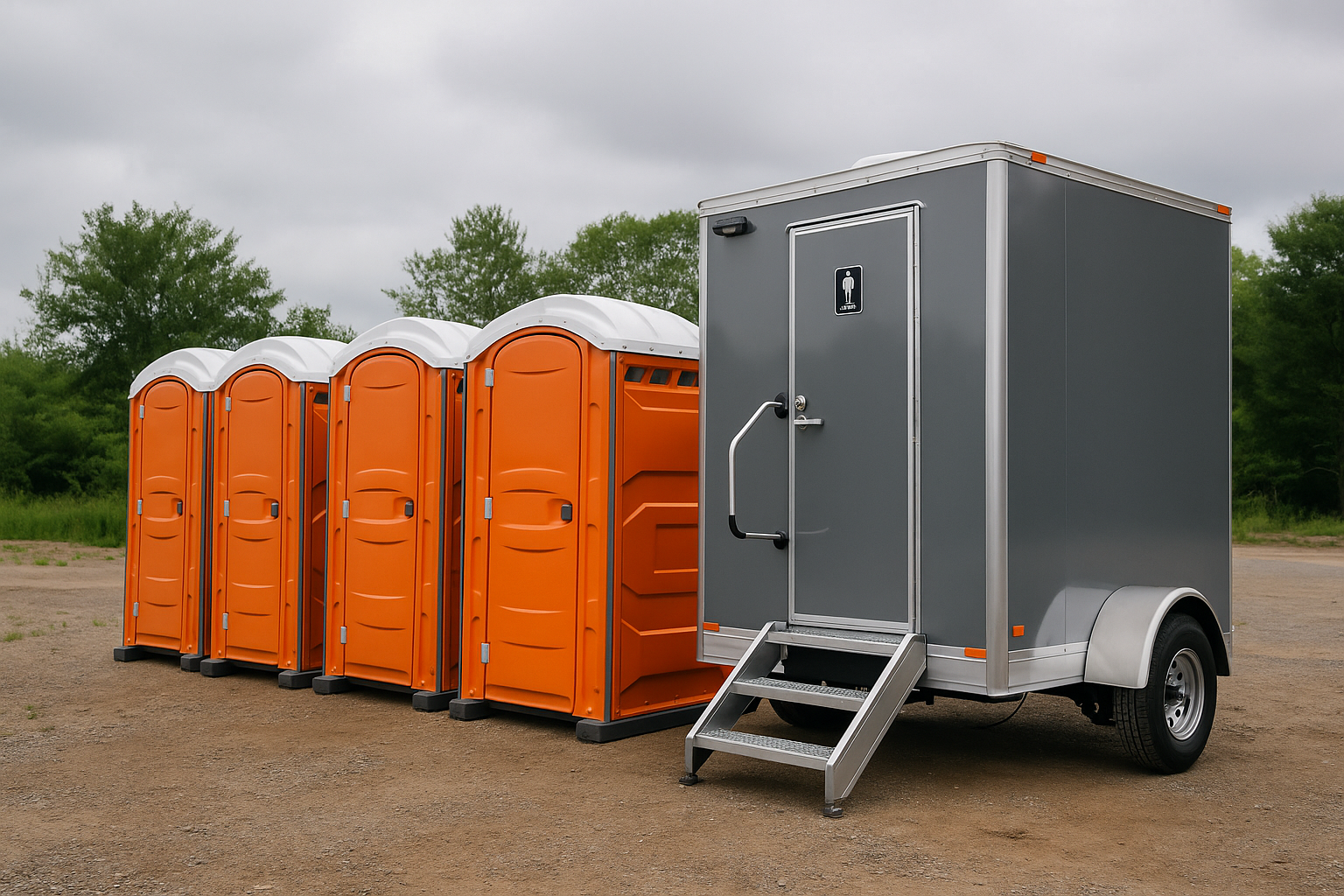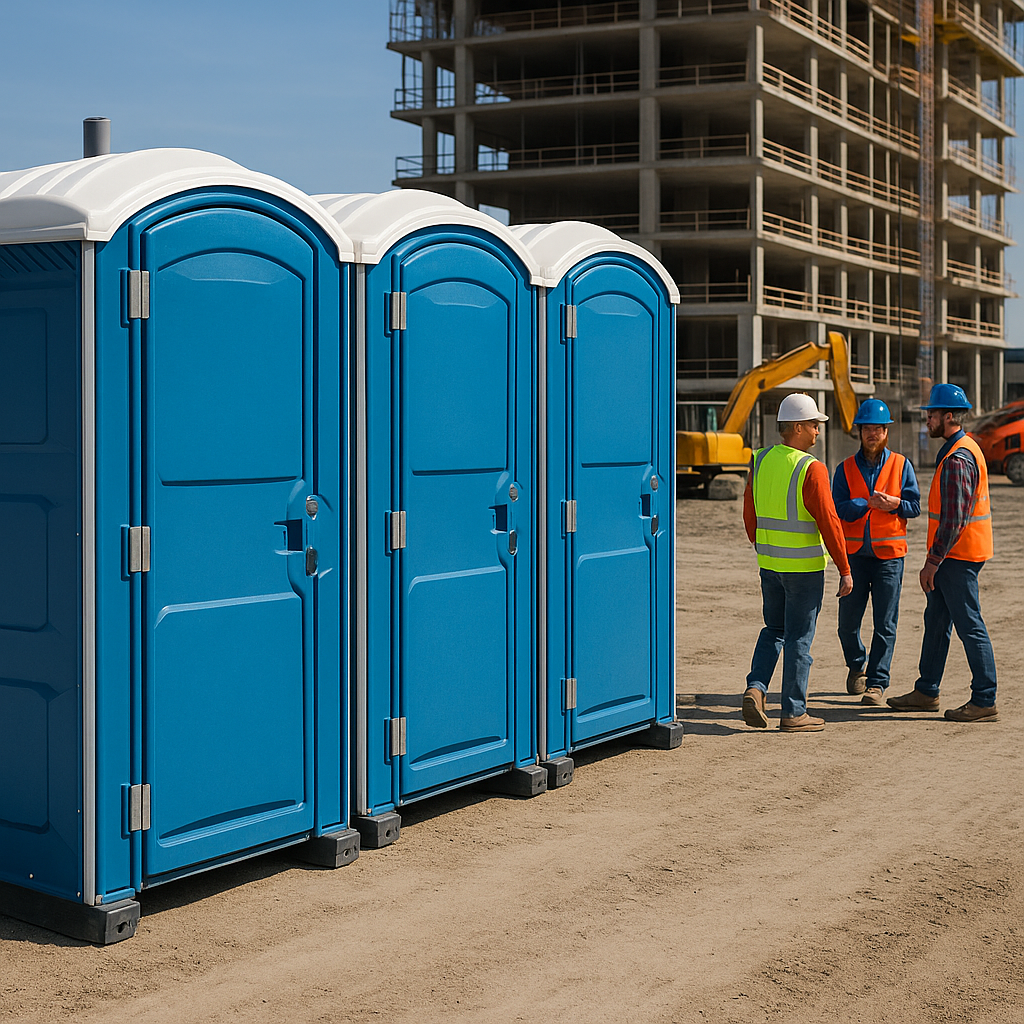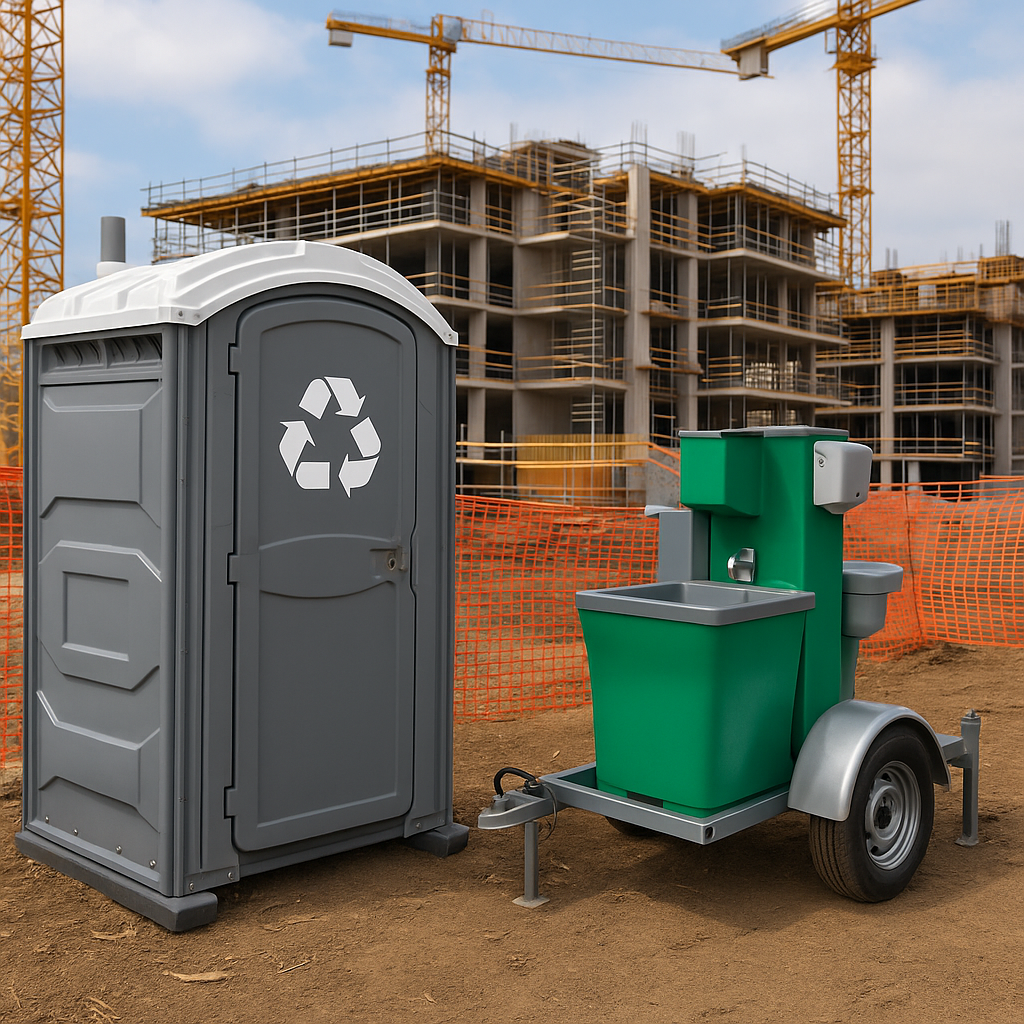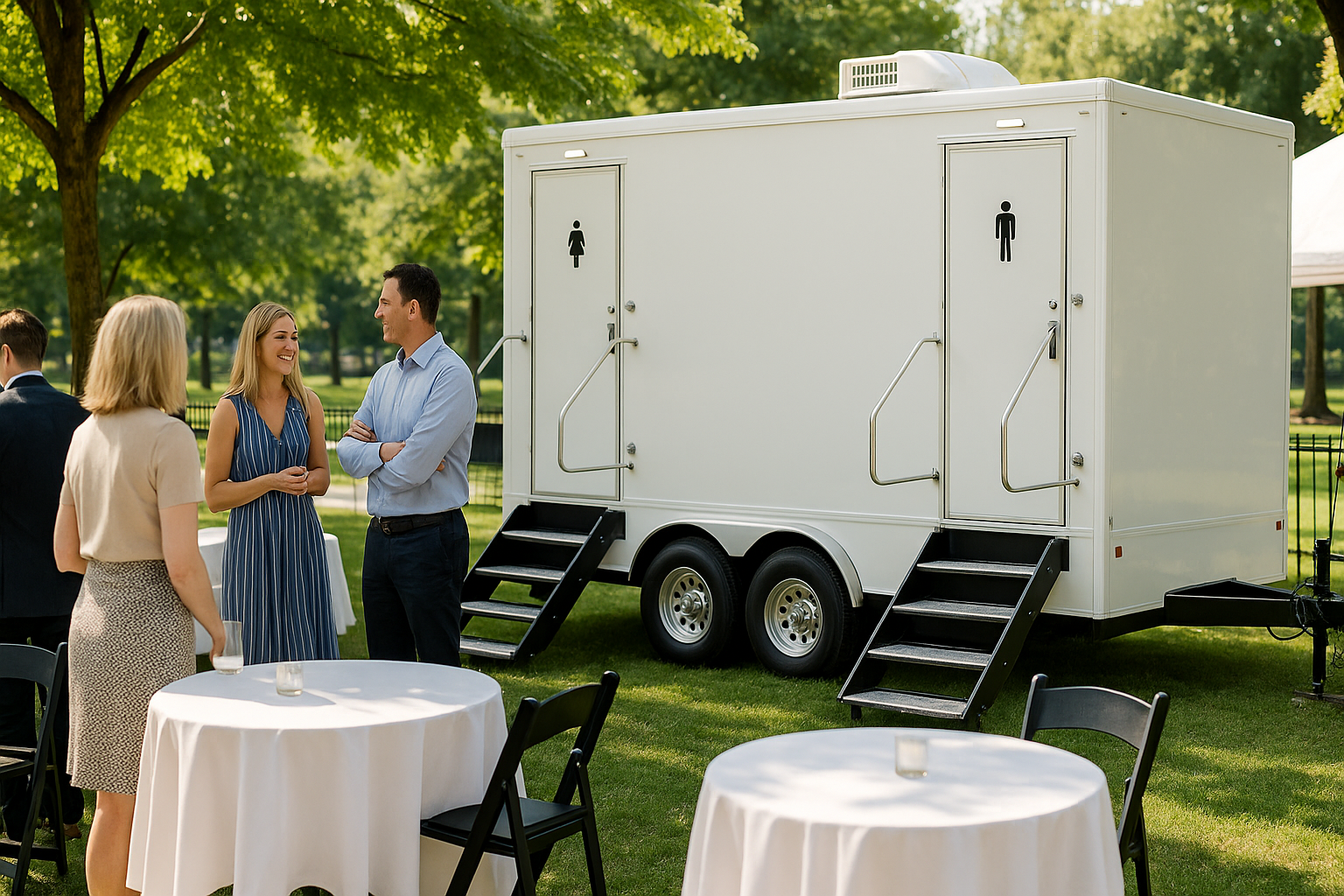How Portable Sanitation Supports Emergency Response and Climate Resilience

In the face of escalating climate change and an uptick in natural disasters, the demand for effective emergency response solutions has never been greater. Among the critical components often overlooked in disaster planning and recovery is portable sanitation. From hurricanes and floods to wildfires and public health crises, portable sanitation ensures that displaced communities and first responders have access to clean, safe, and reliable restrooms.
This blog explores the essential role that porta potties, handicap accessible porta potties, restroom trailers, and handwashing stations play in emergency management and climate adaptation. You'll also learn how these services contribute to public health, sustainability, and resilience in vulnerable communities.
The Role of Portable Sanitation in Emergency Response
Immediate Deployment and Accessibility
When disaster strikes, every second counts. One of the key advantages of portable toilets is their ability to be rapidly deployed. They arrive fully assembled, ready for use, and can be set up almost anywhere—urban streets, rural fields, or disaster shelters.
These features make them ideal for emergency response in areas where infrastructure has been damaged or destroyed.
Organizations such as FEMA and local emergency management teams often rely on portable sanitation to support displaced populations and aid workers. Emergency portable toilet rentals can be stationed at emergency shelters, relief distribution centers, and mobile clinics—anywhere clean sanitation is needed immediately.
Disease Prevention, Public Health, and Emergency Response Sanitation Services
The aftermath of natural disasters often includes the breakdown of water and sanitation infrastructure, which significantly increases the risk of waterborne illnesses such as cholera, dysentery, and hepatitis A. According to the Centers for Disease Control and Prevention (CDC), maintaining portable sanitation facilities in emergencies is crucial for preventing the spread of infectious diseases (CDC).
Portable toilets, paired with portable handwashing stations, allow for hygienic waste disposal and hand hygiene, which are cornerstones of infection prevention. Portable sanitation providers use EPA-registered disinfectants and sealed waste removal systems to ensure that no contamination occurs during or after service.
Inclusive Planning of Emergency Portable Toilet Rentals
Emergency response plans must be inclusive. Handicap accessible porta potties ensure that elderly individuals, people with mobility issues, and those requiring additional space can access sanitation safely and comfortably. These handicap accessible porta potties are built with wider doorways, ground-level entry, and supportive handrails, ensuring everyone can maintain dignity during a crisis.
Portable Sanitation and Climate Resilience
Addressing the Climate Crisis
Climate change is not a future threat—it is a current reality. Communities are facing more frequent and severe climate events, including hurricanes, heat waves, and rising floodwaters. Portable sanitation contributes to climate resilience by offering flexible sanitation solutions in rapidly changing environments.
During heat waves or post-storm recovery, portable toilets help protect vulnerable populations when indoor plumbing is unavailable. These units are especially valuable in climate migration scenarios, where displaced people need access to basic services during transitional housing or relocation efforts.
Integration into Sustainable Sanitation Solutions Infrastructure
More organizations are integrating sustainable sanitation solutions into climate-resilient infrastructure plans. This includes portable toilet technologies that use low-water systems, biodegradable chemicals, and solar-powered lighting for safety. These innovations align with the EPA’s Sustainable Management of Wastewater initiatives and global goals for environmentally responsible infrastructure.
Portable sanitation also supports temporary green infrastructure—an approach used in urban areas to address climate impacts while reducing long-term environmental footprints. These portable sanitation solutions can be removed or relocated as needed, minimizing disruption to local ecosystems.
Supporting Frontline Communities
Communities at the front lines of the climate crisis—particularly in coastal or rural areas—are often the least equipped to recover quickly. Portable toilets provide an essential bridge to restoring normalcy while permanent systems are being repaired. During events like the flooding in Appalachia or hurricanes in the Gulf region, temporary portable sanitation allowed families to remain in place rather than relocating to crowded urban shelters.
Case Studies: Portable Sanitation in Action
Hurricane Harvey Response: Houston, Texas
During the devastating floods caused by Hurricane Harvey in 2017, portable sanitation solutions played a critical role in emergency shelters and aid stations across Houston. Relief organizations rapidly deployed clean porta potties, handicap accessible porta potties, and handwashing stations to support thousands of displaced residents. These units helped prevent outbreaks of waterborne illness and provided a sense of dignity during a chaotic time (Houston Health Department, TCEQ).
COVID-19 Testing and Vaccination Sites Nationwide
During the COVID-19 pandemic, portable sanitation supported thousands of outdoor testing and vaccination sites across the U.S. Cities and counties implemented luxury restroom trailers and portable handwashing stations to maintain hygiene and accessibility standards for healthcare workers and patients. This application showcased how flexible and scalable portable sanitation can be when public health needs are urgent and evolving (CDC)
California Wildfires: Emergency Relief in Sonoma County
In response to recent wildfire seasons in California, counties like Sonoma have utilized portable sanitation to support temporary evacuation shelters and mobile response teams. When water systems were compromised due to fire damage, portable restrooms and handwashing stations were deployed to ensure continuity of care and public health services. The quick, organized deployment demonstrated how portable sanitation enhances climate resilience in real-time (SoCo Emergency, Sonoma County).
Portable sanitation is much more than a convenience—it's a critical tool in our fight against climate change and disaster-related health crises. As communities build more resilient infrastructure and emergency response strategies, clean porta potties, handicap accessible porta potties, and portable handwashing stations should be at the forefront of the conversation. With reliable service, minimal environmental impact, and rapid deployability, portable sanitation is helping build healthier, safer futures.
Why Ware2Go Site Services Is Central Virginia’s Go-To Provider
For those in Central Virginia—including Bowling Green, Ruther Glen, Fredericksburg, Mechanicsville, Stafford, and Falmouth, and surrounding areas—Ware2Go Site Services provides reliable, high-quality portable sanitation solutions tailored to emergency response and climate challenges. Our inventory includes standard portable toilets, handicap accessible porta potties, luxury restroom trailers, and portable handwashing stations designed for both rapid deployment and long-term use.
As a proud division of Drainfield Solutions, Ware2Go Site Services brings years of portable sanitation experience to Caroline County, Spotsylvania County, Hanover County, Stafford County, King George County, and Louisa County. Our team is committed to “Always Clean, Always Ready, Always Ware2Go,” delivering the highest standards in hygiene, safety, and customer service.
To learn more or book a rental, visit www.w2gositeservices.com or call us at 804-633-9273.
Tap to share!
Latest Posts







